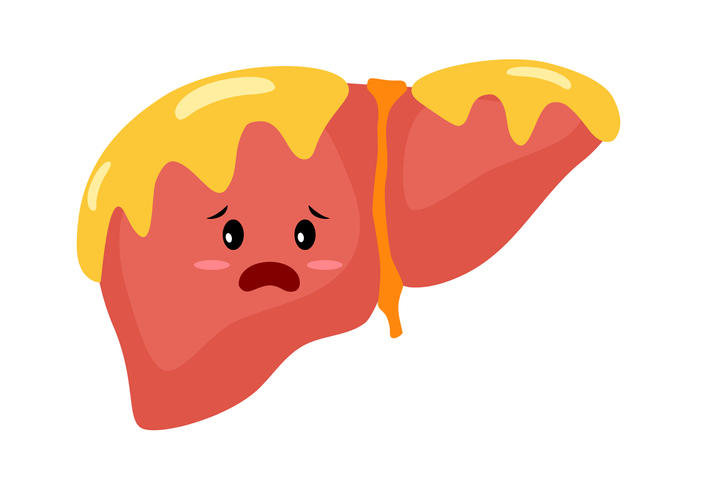Eating Fast Food May Be a Fast Track to Fatty Liver Disease

By Joy Stephenson-Laws, JD, Founder
Think fast food is convenient and cheap? Well, not if you consider that it may cost you a healthy liver. In one of the first studies to show how consuming fast food can be damaging to the liver among 4,000 adults, researchers found evidence suggesting that even a moderate amount of eating fast food can be harmful (especially if you are already obese or have diabetes).
We aren't really moderating.According to this Medical Xpress report that discusses the study, Dr. Ani Kardashian, who is one of the lead authors of the study, said that fast food consumption has increased in the last 50 years. On top of this, there was a significant boom in people eating fast food during the pandemic. Several organizations, including the CDC, report that about a third of American adults eat fast food on any given day.
The recent study mentioned, which was conducted by a research team from the University of Southern California’s Keck School of Medicine, set out to examine the impact of eating fast food on the development of fatty liver disease.
We have previously discussed the issue known as non-alcoholic fatty liver disease (NAFLD). It is normal for the liver to have some fat, but if more than 5-10 percent of the liver’s weight is fat, then it is considered to be a fatty liver. To put it simply, NAFLD is a fatty liver usually caused by bad foods (such as nutrient-void, processed foods) and occurs in people who drink little to no alcohol. (There is also alcoholic fatty liver disease).
After analyzing fast food and pizza consumption at a drive-through or restaurant without wait staff, the researchers saw from the 4,000 adults sampled that:
- Around 52 percent consumed some fast food. Of this group, 29 percent received at least one-fifth of their daily caloric intake from fast food.
- Twenty-nine percent also had a rise in liver fat levels.
"If people eat one meal a day at a fast-food restaurant, they may think they aren't doing harm," Dr. Kardashian said.
"However, if that one meal equals at least one-fifth of their daily calories, they are putting their livers at risk."
She also said, "The severe rise in liver fat in those with obesity or diabetes is especially striking, and probably due to the fact that these conditions cause a greater susceptibility for fat to build up in the liver."
More than 30 percent of the U.S. population has a fatty liver.

This is all very alarming and, quite frankly, very scary. It’s especially disturbing if you think about the fact that children are also most likely eating more fast food than they should be, putting them at a high risk for a very unhealthy future or even an early death.
Having a fatty liver significantly increases the risk of developing heart disease (the leading cause of death for both American men and women), hypertension, type 2 diabetes, cancer and even depression.
The good news is that we can be proactive...starting right now.
I understand that fast food is readily available and quite satisfying, but it’s not worth it. My advice would be to cook healthy meals at home as much as possible and always pack lunches and snacks for being on the go.
To give you a bit more perspective, the liver is the largest organ inside of the human body. It is responsible for more than 500 vital functions and weighs about three pounds! This is why it is so important to take care of your precious liver. You only get one!
A ‘Green Mediterranean’ diet may help fight fatty liver disease. Ultimately, it is important to avoid those processed, nutrient-void foods and eat plenty of fresh, whole foods such as nutrient-dense vegetables.
As always, it is important to talk to a competent healthcare professional about what kind of diet you are following. He or she may adjust your diet in a way that will be most effective at combating NAFLD and other chronic diseases that are usually the result of a poor diet.
It is also important to take routine nutrient tests in order to determine if you are nutritionally balanced. If you are not, a competent healthcare professional can work with you on making the necessary dietary changes and recommend quality supplements if necessary.
A sedentary body is often a home to a fatty liver.It is always good to move daily in order to prevent or reverse (don’t wait until it’s too late and there is permanent damage) a fatty liver. Avoid sitting for prolonged periods of time as much as possible.
Taking care of your body is not a luxury, it is a necessity. This year, try to create time and the ability to treat your body to treatments that can really up the ante on your self-care and overall health and wellbeing. For example, lymphatic drainage can aid in the health of the liver. Click here to learn more and book an appointment.
Enjoy your healthy life!
Disclaimer: This article is not intended to provide medical advice. Please consult with your doctor or another competent healthcare practitioner to get specific medical advice for your situation.
The pH professional health care team includes recognized experts from a variety of health care and related disciplines, including physicians, attorneys, nutritionists, nurses, and certified fitness instructors. This team also includes the members of the pH Medical Advisory Board, which constantly monitors all pH programs, products, and services. To learn more about the pH Medical Advisory Board, click here.







